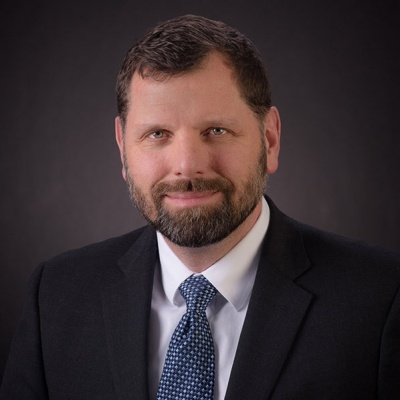Alumni Profile: Phil Haun | 2019 | News

Alumni Profile: Phil Haun
In this section we will ask an SSP alum ten "frequently asked questions" in order to spotlight their own career achievements as well as what insight they have gained as a result from their years at SSP.
Phil Haun is Professor and Dean of Academics, U.S. Naval War College, Newport, Rhode Island
1) What is your degree and your dissertation title?
PhD in Political Science in the fields of International Relations and Security Studies
On Death Ground: Why Weak States Resist Great Powers
2) What is your current position/title?
Professor and Dean of Academics, U.S. Naval War College, Newport, Rhode Island
3) As is often the case for SSP alums, when you finished your dissertation you had an important choice to make between a position in the policy world and an academic career. What inclined you toward the option you chose? Do you have any advice to share with current SSP students as they weigh their career choices?
I was an active duty colonel in the USAF when I completed my dissertation. I had the choice between professional military education or taking a policy related position. In my career I have enjoyed two passions, flying and teaching. I was fortunate to have already had a fulfilling career as a pilot and wanted to have a similarly rewarding experience as a professor.
4) Would you say that your experience at SSP has continued to influence your current position? What key concepts or values from SSP have served you well in your current position?
My years at MIT have proven invaluable in many ways. First, being a part of the SSP cohort for life has been immensely rewarding. I still rely upon my friends and colleagues from MIT as the foundation of my professional career. Second, SSP instilled in me that my job was to answer important and challenging and questions and that scholarship could be both rigorous and relevant.
5) One of the primary premises of the MIT SSP is “War is an extension of politics. Politics causes wars. Policy must be the governing force.” Can you explain how, in your experience, this has been true or false? What has been your own experience?
Prior to coming to SSP I had fought in several wars and had witnessed that while in theory policy should govern force, once violence is employed an endogeneity can arise. Our challenge is to constantly strive to make sure war, and those responsible for waging war, do not drive policy, but instead implement policies, where and when appropriate, that improve the security of the nation and the world.
6) What is the part of your current position that you think allows you the most satisfaction and/or dissatisfaction and why?
Most satisfaction is from working with engaging students and conducting my research. I enjoy watching and contributing to the intellectual development of others. I also enjoy my research, investigating important questions that have not been answered before, or at least not to my satisfaction. Dissatisfaction is that there is never enough time to do all the interesting things I’d like to do.
7) What in your career are you most proud of and has SSP been a part of that?
Since SSP I have been most proud of the mentorship I have been able to provide to several students and junior faculty and have been able to watch them grow and succeed.
8) What, outside of SSP and your work here, has been the factor that has most influenced who you are now, and what your current research interests are?
My personal experience in combat brought me to SSP to answer questions as to how military force can best be used to achieve political objectives. What are the realistic limitations as to what can be achieved through the use or threat of force? And most recently, how can air power be most effectively and efficiently employed to achieve political outcomes?
9) Looking back, what, if anything would you do differently?
I would have taken more late spring afternoons to stroll along the Charles to watch the sail boats and I would have gone to dinner more often with Owen Cote.
10) What is the key piece of advice that you would pass along to current SSP graduate students, or those just beginning their careers?
It may sound trite but find your passion and invest in it. Life is too short to not do what you love. So follow your heart, but also make sure to follow it up with hard work and never ever, ever give up.
